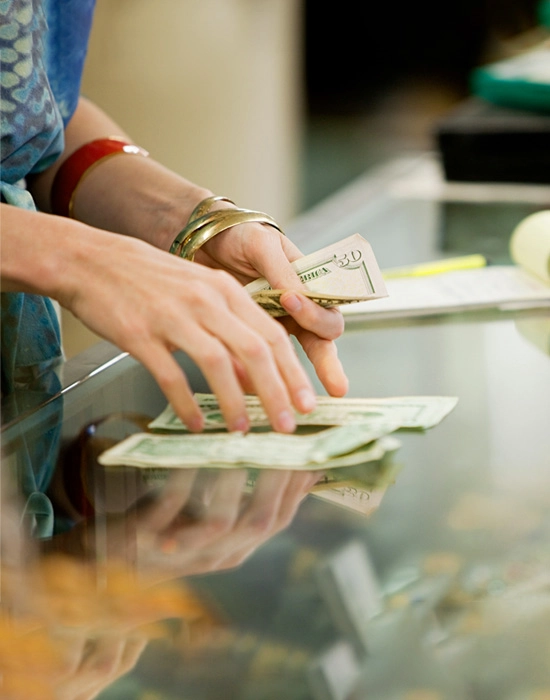The current exchange rate constantly changes, so checking the latest rate before exchanging your money is essential. The latest exchange rates are on our website, Remitforex.
Here are some factors that can affect currency fluctuations:
- Economic factors: A country's economy's strength can affect its currency's value. If a country's economy is strong, its currency will likely be strong.
- Political factors: Political instability can also affect currency fluctuations. If a country is experiencing political turmoil, its currency will likely be volatile.
- Interest rates: Interest rates can also affect currency fluctuations. If a country's interest rates are higher than other countries, its currency will likely be stronger.
- Speculation: Speculation can also affect currency fluctuations. If investors believe that a currency will appreciate, they may buy it, which can increase its value.
Being aware of currency fluctuations when planning a trip abroad is essential. If you are unsure how much money to exchange, it is always best to err on the side of caution and exchange more money than you think you will need.
Yes, there are often fees or commissions associated with currency exchange. It may vary depending on the currency exchange service or bank you use, the amount of money you exchange, and the service you use.
Some of the most common fees associated with currency exchange include:
- Exchange rate markup: This is the difference between the mid-market exchange rate (the rate that banks and currency exchange bureaus use to trade currencies between themselves) and the rate that you are offered. The exchange rate markup is how the currency exchange bureau or bank makes a profit.
- Foreign transaction fee: This is a fee your credit or debit card issuer charges when you purchase in a foreign currency. The foreign transaction fee is typically 1-3% of the transaction amount.
- Convenience fee: Some currency exchange service providers will charge a fee for ATM withdrawals or delivery of foreign currency. The convenience fee can range from $5 to $20.
It is essential to compare the fees and exchange rates offered by different currency exchange bureaus before you exchange your money.
You can exchange currency at a bank, airport, or currency exchange kiosk. However, these different institutions' fees and exchange rates can vary.
Here are some things to consider when choosing where to exchange currency:
- Fees: Banks and currency exchange bureaus typically charge a fee for exchanging currency. This fee can be a percentage of your exchange or a flat fee. Airport currency exchange kiosks often have the highest fees.
- Exchange rates: The exchange rate is the rate at which one currency is converted into another. The mid-market exchange rate is the rate banks and currency exchange bureaus use to trade currencies. The exchange rate you are offered may be higher or lower than the mid-market exchange rate.
- Convenience: Banks and currency exchange bureaus are typically located in central areas, making them convenient to access. Airport currency exchange kiosks are often found in the airport, making them suitable for travellers.
Whether it is better to exchange currency in advance depends on a few factors, including the exchange rate, the fees charged by different institutions, and your personal preferences.
Here is a comparison of the pros and cons of exchanging currency in advance and waiting until you arrive at your destination:
Exchanging currency in advance
-
Pros:
- You may get a better exchange rate.
- You can avoid the high currency exchange fees charged by airport currency exchange kiosks.
- You can have the money ready when you arrive at your destination.
-
Cons:
- The exchange rate may fluctuate before you travel.
- You may have to pay a fee for exchanging currency in advance.
Waiting until you arrive at your destination
-
Pros:
- You can get the current exchange rate.
- You may not have to pay a fee for exchanging currency.
-
Cons:
- You may get a worse exchange rate.
- You may have to pay high fees for ATM withdrawals or credit card use.
- You may not have enough time to exchange currency if you arrive late at night or on weekends.
Ultimately, the best way to exchange currency depends on your circumstances. Exchanging money in advance may be a good option. However, if you are unsure when you will be travelling or cannot plan, waiting until you arrive at your destination may be a better option.
Yes, there are restrictions on the amount of currency you can exchange. These restrictions vary depending on the country you are in and the purpose of your exchange.
The RBI imposes restrictions on the amount of foreign currency that can be purchased or remitted for various purposes. These restrictions are in place to control the flow of foreign currency in and out of the country.
For travel purposes, the current regulations state that an individual can purchase or remit up to USD 2,50,000 in foreign exchange in a financial year (April-March). This limit applies to all sources, such as banks, money changers, and online platforms.
The forms of identification required for currency exchange vary depending on the country and the currency exchange bureau. However, some common forms of identification that may be needed include the following:
- A valid passport: This is the most common form of identification required for currency exchange.
- A driver's license: This is another common form of identification that may be accepted.
- A national ID card: This is a form of identification some countries issue.
- A birth certificate: This may be accepted as identification in some cases.
- A voter's ID card: This may be taken as identification in some cases.
In addition to these documents, some currency exchange bureaus may require you to provide proof of address.
It is essential to check with the currency exchange bureau before you exchange currency to see what forms of identification are required.
Yes, you can exchange leftover foreign currency back to your home currency. However, it is essential to note that you may not get a reasonable exchange rate. The exchange rate you get will depend on the current exchange rate and the fees charged by the currency exchange bureau.
Here are some things to keep in mind when exchanging leftover foreign currency:
- Compare exchange rates: Before you exchange, compare the exchange rates offered by different banks, currency exchange service providers, and airport currency exchange kiosks. You can use a website like XE or Oanda to compare exchange rates.
- Examine the fees: Besides the exchange rate, consider the fees charged by different institutions.
- Consider the time and effort involved: Exchanging leftover foreign currency can take time and effort. You may have to go to a currency exchange bureau or bank, and you may have to wait in line.
- Consider the value of the leftover currency: If you only have a small amount, it may not be worth the time and effort to exchange it.
Yes, exchanging damaged or torn banknotes in most countries is possible. The exact process and conditions for exchanging damaged banknotes vary from country to country. Still, generally, you will need to take the damaged banknotes to a bank or other authorized institution.
Here are some general guidelines for exchanging damaged banknotes:
- The banknotes must be identifiable. It means they must still have most security features, such as the serial number and the watermark.
- The banknotes must be less than half-torn. The banknotes may not be exchangeable if they are more than half-torn.
- The banknotes must be clean and free of dirt or debris.
Sometimes, you may also need to provide identification and proof of purchase.
Yes, there are some risks involved in currency exchange, such as counterfeit notes or scams.
- Counterfeit notes: Counterfeit notes are fake currency made to look like real currency. They can be challenging to spot, even for experienced professionals. If you receive a counterfeit note, you may not be able to exchange it or use it to make purchases.
- Scams: Many scams involve currency exchange. Some common scams include:
- The "pigeon drop" scam: The scammer will approach you and offer to exchange your currency for a better rate. However, the currency they give you is counterfeit.
- The "bait-and-switch" scam: In this scam, the scammer will offer to exchange your currency for a reasonable rate, but then they will switch the currency after you have given them your money.
- The "fake ATM" scam: The scammer will place a fake ATM in a public place. When you use the ATM, your card will be skimmed, and your money will be stolen.
To avoid the risks of counterfeit notes and scams, exchange currency only at reputable institutions like banks and currency exchange bureaus. Be aware of the signs of fraud.
There are many places where you can exchange your currency for foreign currency. Here are some of the most common areas:
- Banks: Banks are a good option for exchanging currency because they typically offer competitive exchange rates and are reputable institutions. However, banks may not be open all hours, so you must plan.
- Currency Exchange Service Providers: Currency exchange service providers are typically open all hours and offer a more comprehensive range of currencies than banks
- Airport Currency Exchange Kiosks: Airport currency exchange kiosks are convenient because they are located in airports but typically charge the highest fees.
- Online currency exchange services: Online currency exchange services offer the convenience of exchanging currency from the comfort of your home/office. However, they may not provide the best exchange rates.
- Travel agencies: Travel agencies may offer currency exchange services but typically charge higher fees than banks or currency exchange bureaus.
When choosing a place to exchange currency, comparing the exchange rates and fees charged by different institutions is essential. Consider the location's convenience and the operation hours.





